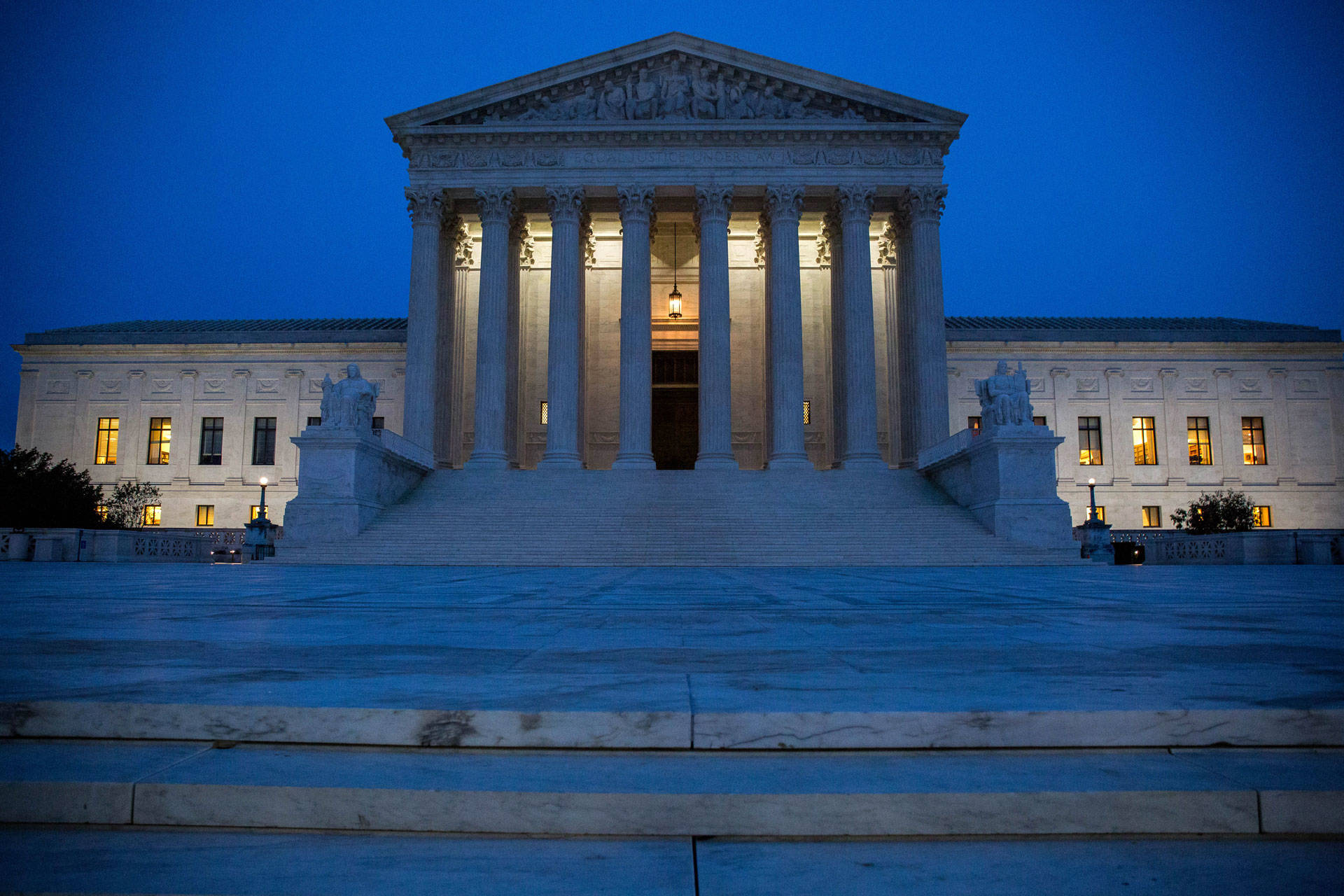In oral arguments Wednesday, the U.S. Supreme Court appeared evenly split over a case out of California that sets some limits on long-term detention of immigrants.
The case, Jennings v. Rodriguez, deals with the rights of legal permanent residents who are subject to deportation because they've been convicted of crimes, and asylum seekers who have met the government's initial criteria for protection from persecution. Both groups are subject to mandatory detention while they fight deportation in immigration court.
There are roughly 8,000 such detainees on any given day. They are among more than 400,000 immigrants detained by the Department of Homeland Security in the course of a year. Those numbers could increase if President-elect Donald Trump makes good on his pledge to deport millions of unauthorized immigrants and immigrants with criminal histories.
In 2015 the U.S. Court of Appeals for the Ninth Circuit, in San Francisco, upheld a lower court ruling that said that these detainees are entitled to hearing before an immigration judge every six months to consider them for release while their immigration cases proceed.
Ahilan Arulanantham, an attorney for the American Civil Liberties Union, is representing the immigrants. He told the Supreme Court justices that some of his clients have spent years behind bars. He urged the justices to affirm that a bond hearing to consider release is a right under the Constitution's due process clause.
